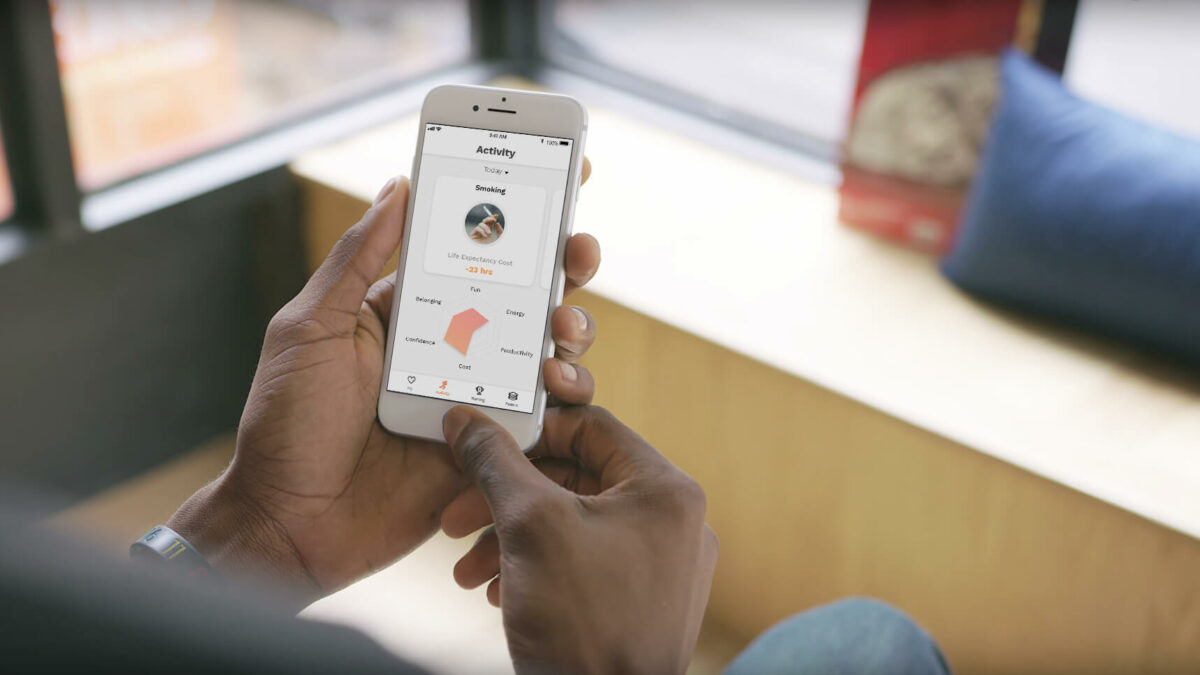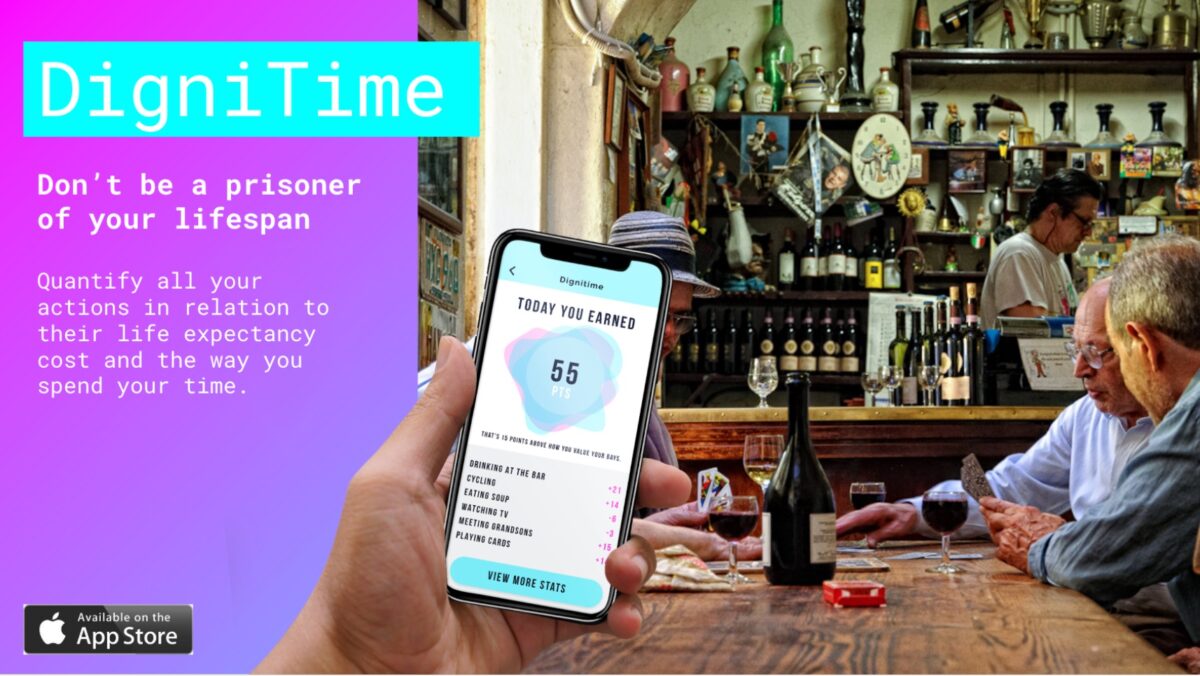
Qualitime helps you track how everything you do influences your happiness and your life expectancy so that you can decide what is most important to you.
What is the problem
In a context where lifestyle choices frequently drive chronic diseases and where life expectancy is increasingly expanding, the quality of life people have in their old age is in far sharper focus. People try to optimise their lives to prevent ill health and unhappiness during old age. Still, the issue for many is that it can be challenging to make decisions about what to do and what to eat etc. because it’s not clear what impact things have. And when there is a conflict between activities that make you happy and those that make you healthy, balancing your decisions can lead to guilt or anxiety.
How Qualitime responds
Qualitime gives people a way to quantify and compare the impacts of all their decisions in simple health and happiness metrics. This allows them to recognise patterns in their behaviour with adequate information, with which they can make informed decisions about their lives. The consequence of having behaviours driven by their impact on life expectancy and health to happiness, gives each individual highly meaningful data about the value of their time, and helps them tune their life to what’s important to them.
See the impact of every action:
Through wearable devices and artificial intelligence, people can know how happy activities make them and estimate their impacts on their lifespan. What might it mean if an hour of happiness equates to a day less of your life? Is it worth it?
Rank your activities:
All activities can be compared and ranked against each other based on how happy they make people and how much they extend their life. The ranking of these activities helps them prioritise the things in life that mean the most to them.
Find patterns in your behaviours:
Through intelligent analysis, Qualitime finds and highlights patterns in people’s behaviour that have impacts on their happiness and life span, so that they are armed with accurate information to help them prioritise how to spend their time.
Track and recommend:
People can see how their priorities have changed over time and get recommendations on alternative happiness sources.
What we
learnt
We demonstrated a low fidelity prototype of Qualitimes to high-need users and this is what we learned:
- Many of the users we spoke to responded to this proposition with excitement. They expressed that there is a frequent conflict in their minds about the best way to live in a way that meets their desires, but avoids their fears.
- They discussed their fear of dying alone and unhappy or as a burden on members of their family. A significant part of what they described as their purpose and as their source of happiness was about relishing the opportunity to be with family and support them wherever possible.
Emerging areas of interest around this proposition are about:
- the way it may influence the behavioural styles of life;
- how it may contribute a fascinating level of insight to all aspects of life; and,
- how the service cannot isolate the impact of its own presence on the experience of life, maybe even damaging some of life’s ‘magic’.

Different life management styles
People describe contending with a constant set of negotiations regarding health and happiness. They stated that they would often simplify their decisions by installing blanket bans on activities or by creating strict routines that are considered and then adhered to. They discuss how having access to this type of data could help them recognise broader patterns of behaviour, meaning that they wouldn’t need to use such strict methods to construct and manage day-to-day life. Consequently, we may find that the service (and others like it) have side effects like enabling people to have more relaxed or spontaneous lives. An analogy could be that having live updating maps on our phones doesn’t just mean that city dwellers may spend less time planning or getting lost, it also frees people from their routes and maps giving them the scope to explore, use and socialise in cities in new ways.
Influence of the service itself: complex interdependencies between health and happiness
One clear topic is about how the service itself could influence the value of certain activities simply by sharing information about it. If having a glass of wine previously harmed your life expectancy but made you happy, perhaps learning about its influence on your life expectancy may damage the happiness you take from it. Other ways that the service may struggle to isolate its own impact is in its social aspects. For instance, could it become commonplace to share happiness scores? If so, what if different people influence each other’s happiness in different ways? Or, what if your happiness is typically lower than the rest of your community? For some, this level of integration between AI and life is intrusive and potentially damaging.
Damaging abstract qualities of human experience
The final discussion we touch on here is about a more abstract concern about the role of technology in our lives. People voiced hesitancy about quantifying such important things like life expectancy or the value you place on day-to-day life because of the damage it may cause to the vivacity and experience of life. Participants felt that by eliminating inaccurate understandings of ourselves and exposing all our decisions to such high levels of clear and transparent rationality, we expose our own irrationalities and we either correct them or we continue to live by them. But either way, we somehow reduce the authenticity of the human experience.
Our new direction of exploration
If this proposition is progressed, the strategic question of relevance to our investigations is more along the lines of:
How might we offer people powerful insights about themselves to support happier lifestyles without damaging valued, but less ‘rational’ components of life and without disrupting more abstract characteristics of the human experience?

Related to ‘Qualitime’

Scenarios
Smart ageing
People’s life expectancy may seem to perpetually extend without people really knowing when death may come, living with an ageing body will be a longer part of life and therefore illness is even more problematic. People may dedicate more of their life to extending their lives.









